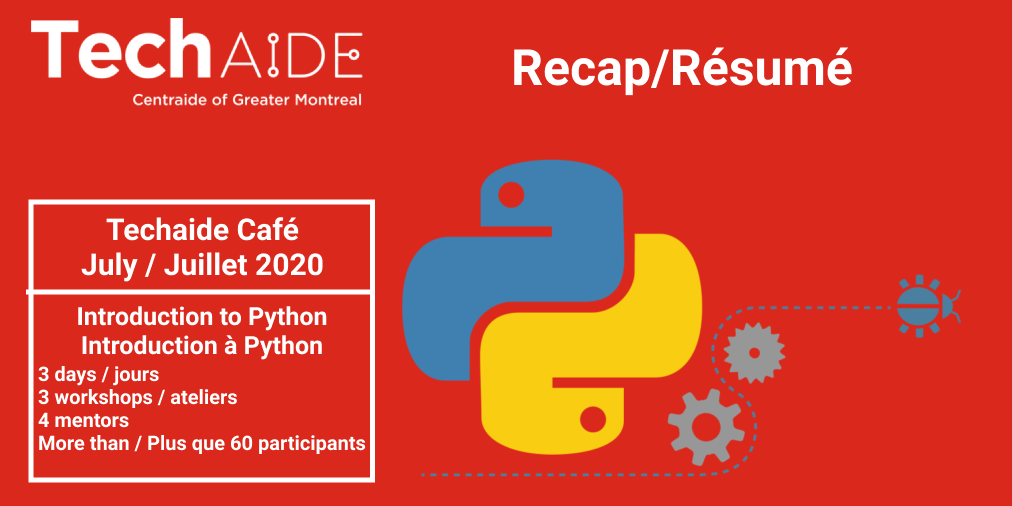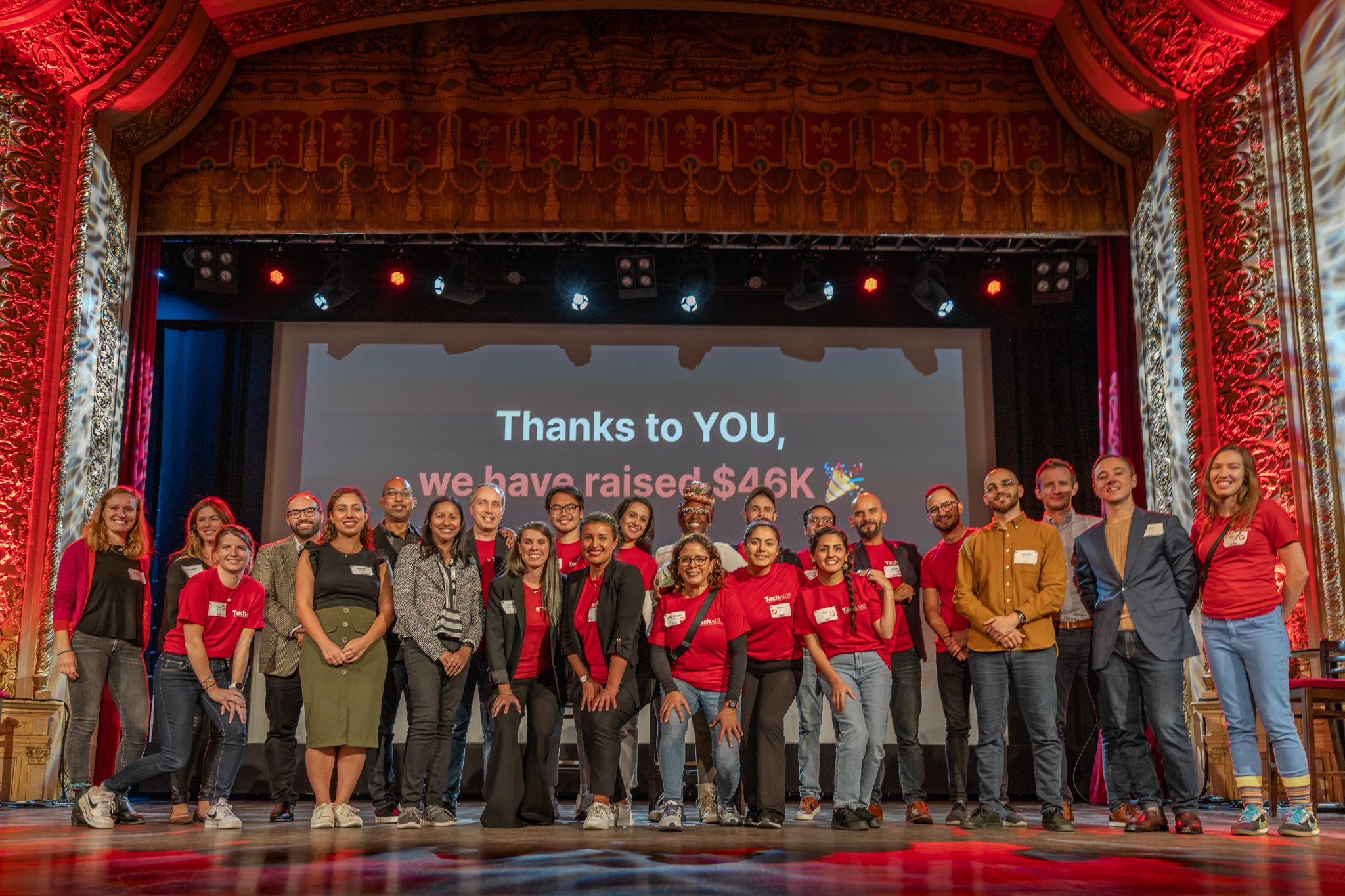Event|Techaide Café
Python Workshops
TechAide Café’s mission is to create an open space where the Montreal tech community can meet online and exchange knowledge, inspiration, ideas and insights while also helping those in need.
In July, Techaide Café hosted 3 workshops for developers who are new to Python. The goal of this event was to give participants the chance to discover and learn this language with the help of our mentors who use Python on a regular base. The workshops were hosted on Zoom and were divided in 2 sections: a theory part where our instructors explained the concepts and another part where participants are separated into breakout rooms and try out the newly learned knowledge with the guidance of our mentors.
What is Python?
Python is a very popular programming language and one of the easiest to learn. Python is the most prominent language in mathematics, Artificial Intelligence, and data science. It is also extremely powerful in research, developing websites, web apps, desktop GUI applications, animation, and so much more.
Why did we do this?
We wish to bring the tech world closer to the social world. This course was one of our events that promoted social collaboration and shined a light on the battle that Centraide has been fighting for decades in our communities. Poverty, food insecurity, social isolation, and many more problems have devastated families. Inspired by the actions of Centraide, this course was one of the ways for us to help our community.
What was covered?
During the 3 days, our instructors covered the basics of python on Kaggle:
1. Hello, Python: An introduction to Python syntax, variable assignment, and numbers
2. Functions and Getting Help: Calling functions and defining your own, and using Python’s built-in documentation
3. Booleans and Conditionals: Using booleans for branching logic
4. Lists: Lists and the things you can do with them. Includes indexing, slicing and mutating
5. Loops and List Comprehensions: For and while loops, and a much-loved Python feature: list comprehensions
6. Strings and Dictionaries: Working with strings and dictionaries, two fundamental Python data types
7. Working with External Libraries: Imports, operator overloading, and survival tips for venturing into the world of external libraries
A huge thanks to our instructors:





